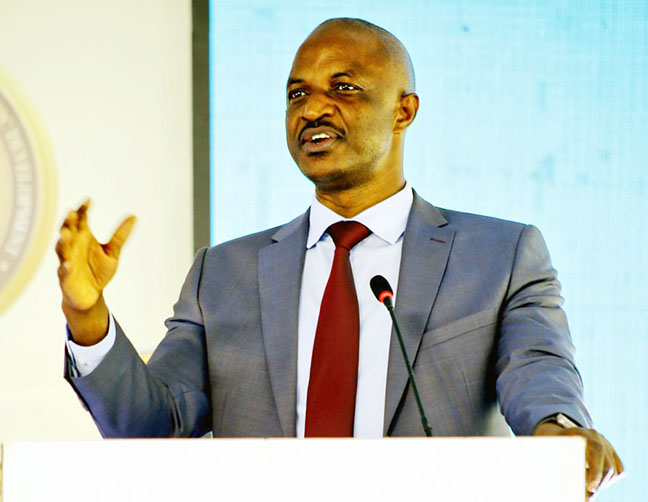LUCAS MUSISI
KAMPALA –On August 8, 2023, the World Bank Group released a statement highlighting its concerns about Uganda’s Anti-Homosexuality Act. The bank suggested that the law fundamentally conflicts with its core values, which stress inclusion and non-discrimination. In response, the World Bank has paused new public financing to Uganda, undertaken a review of its existing portfolio in the country, and proposed additional measures to protect sexual and gender minorities in its financed projects.
Implications
A Strong Message to Uganda and the World
The World Bank’s decision sends a clear message that it values principles of equality and non-discrimination, even if it means putting significant funding on hold. This stance could influence other international organizations and nations to reassess their relationships and financial agreements with Uganda.
Immediate Impact on Ugandan Development Projects
The halt in financing will likely have an immediate impact on ongoing and planned development projects in Uganda. Since the World Bank Group has been a significant source of funding for various initiatives in the country, the delay or potential realignment of these projects might lead to temporary setbacks in key areas like infrastructure, education, and healthcare.
The World Bank’s decision regarding Uganda’s Anti-Homosexuality Act goes beyond finance; it reflects a principled stance emphasizing inclusion and non-discrimination. The immediate outcomes may involve delays in development projects, but the larger implications touch upon international diplomacy, human rights, and global finance. Uganda’s actions in this matter will be closely monitored, and the World Bank’s decisive approach sets a precedent in aligning financial decisions with universal human rights and ethical considerations.
In 2023, the World Bank engaged in significant financial collaboration with Uganda, approving four distinct loans between April and July. Here is an informative breakdown of these agreements:
- Uganda Skills for Growth and Inclusion Program2
- Date of Approval: July 21, 2023
- Status: Pipeline
- Details: This project is still ongoing and aims to develop skills that promote growth and inclusivity within the Ugandan economy.
- Enhanced Productivity, Accountability & Knowledge Systems for Improved Public Investment Outcomes in Education and Health
- Date of Approval: April 2023
- Status: Closed
- Details: This initiative focused on improving public investment in critical sectors like education and health by enhancing productivity, accountability, and knowledge systems. The project has now been closed.
- Additional Financing to the Uganda Investing in Forests and Protected Areas for Climate-Smart Development Project
- Date of Approval: June 2023
- Status: Pipeline
- Details: This is an ongoing effort to bolster Uganda’s commitment to climate-smart development through investment in forests and protected areas.
- EU Financing for Land Administration
- Date of Approval: July 13, 2023
- Status: Pipeline
- Details: Another project in the pipeline, this financing, is aimed at improving land administration in Uganda, likely in collaboration with the European Union.
These projects showcase the World Bank’s multifaceted engagement with Uganda in 2023, encompassing areas such as skills development, healthcare, education, climate change mitigation, and land administration. The status of the projects varies, with some in the pipeline and others already closed, reflecting the dynamic nature of the World Bank’s involvement in the region.
Emphasizing Universal Rights and Environmental and Social Standards
The World Bank’s response emphasizes the organization’s commitment to environmental and social standards. The statement indicates a readiness to go beyond mere rhetoric by implementing third-party monitoring and grievance redress mechanisms. These actions could serve as a model for how global organizations can approach issues of discrimination and social injustice.
Potential Ripple Effects on the Economy
While the statement maintains the World Bank’s commitment to helping Uganda, the halt in new financing may still have ripple effects on the Ugandan economy. It might make other investors more cautious, potentially leading to a decline in foreign investments. The real impact on the ground will largely depend on the duration of the halt and how quickly the World Bank and the Ugandan authorities can find common ground.
A Delicate Diplomatic Situation
The decision places Uganda’s authorities in a challenging position. The country may now need to reevaluate its stance on the Anti-Homosexuality Act to align with international standards or risk losing vital financial support. How Uganda responds will likely have a lasting effect on its relationships with other international organizations and donors.
Conclusion
The World Bank’s decision regarding Uganda’s Anti-Homosexuality Act is more than a mere financial one; it’s a principled stand that underscores the bank’s commitment to inclusion and non-discrimination. While the immediate consequences may be felt in the delay or realignment of various development projects, the broader implications could reverberate across the realms of international diplomacy, human rights, and global finance. It’s a complex situation that has placed Uganda at a crossroads, where its next steps will be closely watched by the world. The World Bank’s proactive stance has set a precedent, underscoring the importance of universal human rights in the domain of international finance and development.
Top of Form

